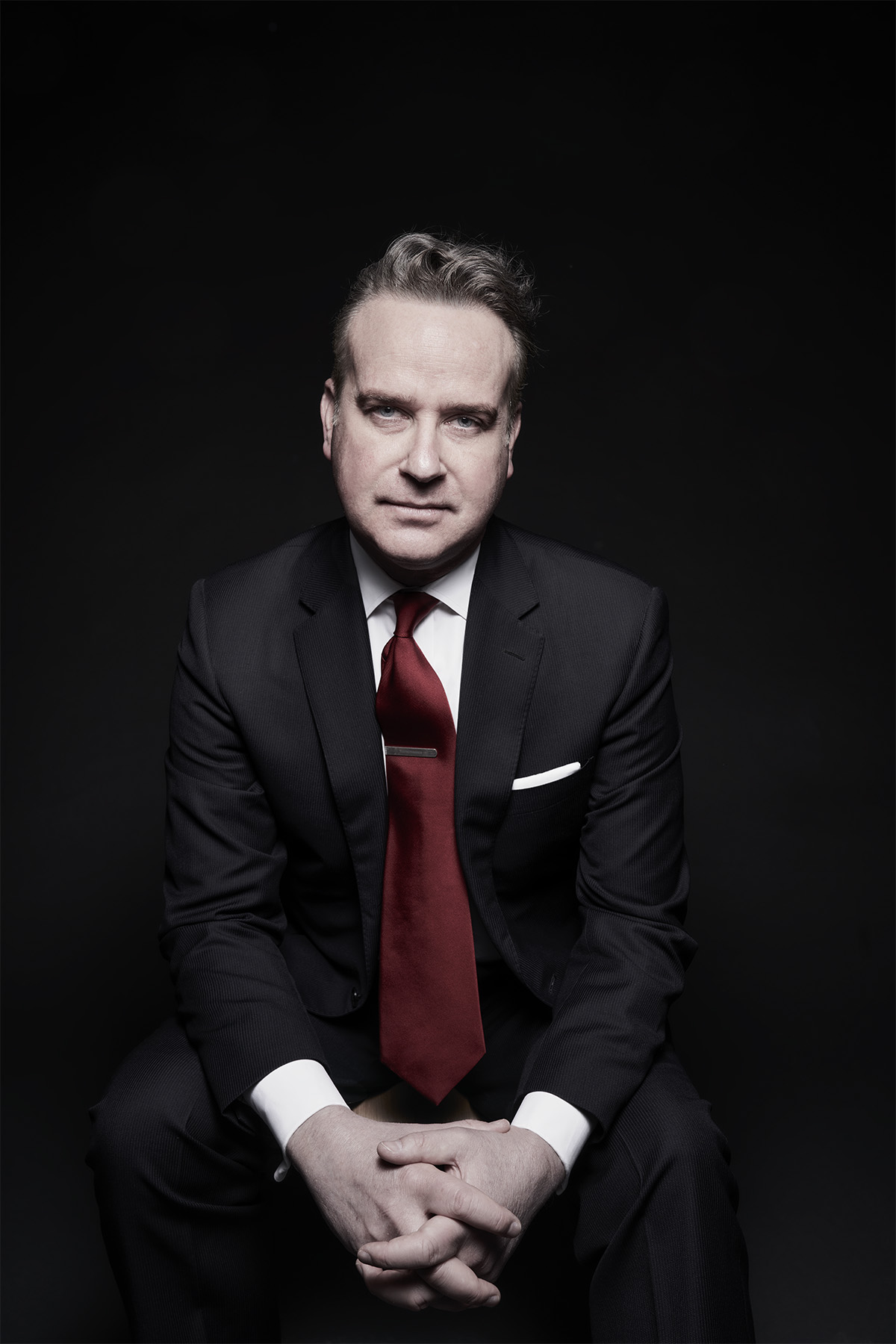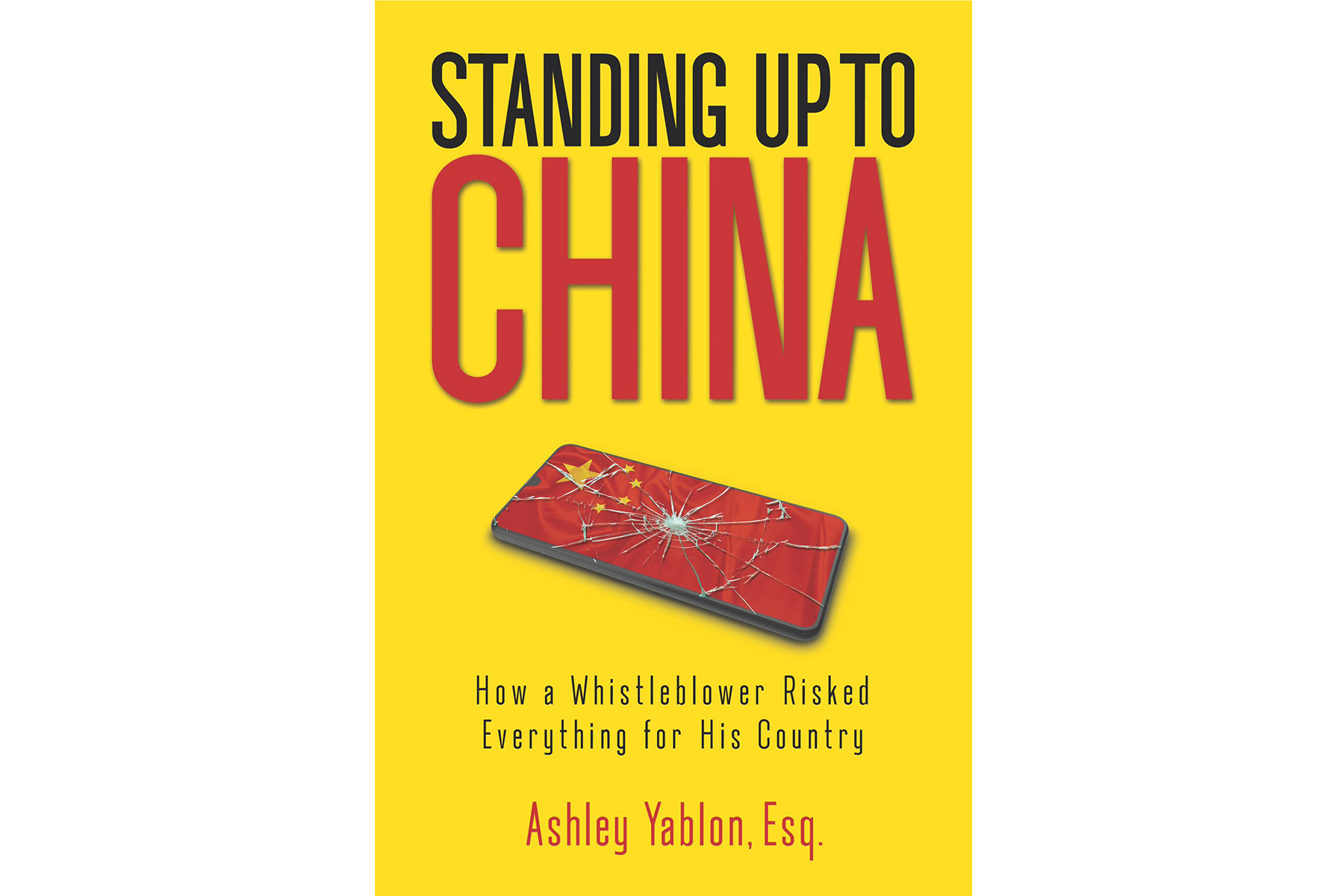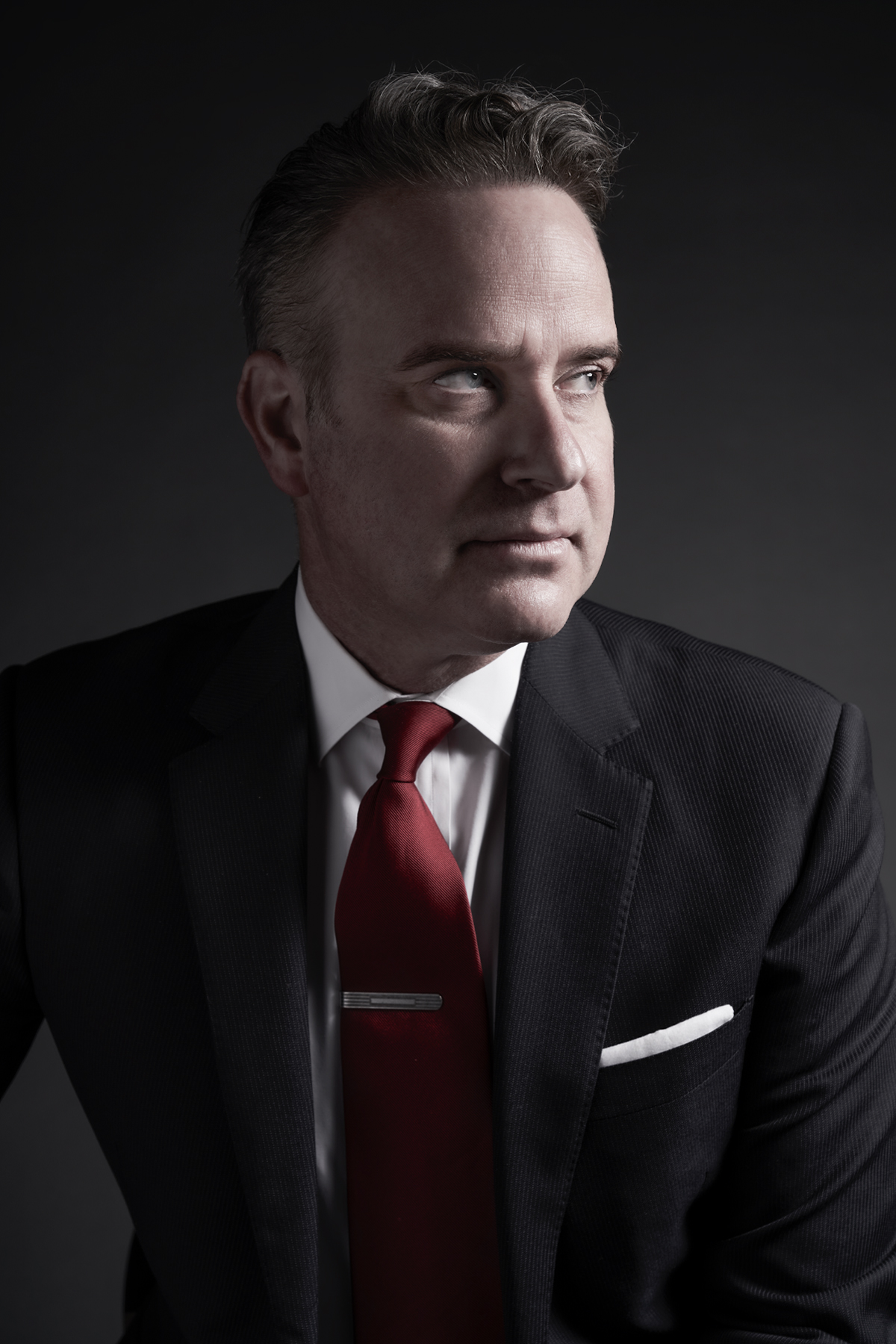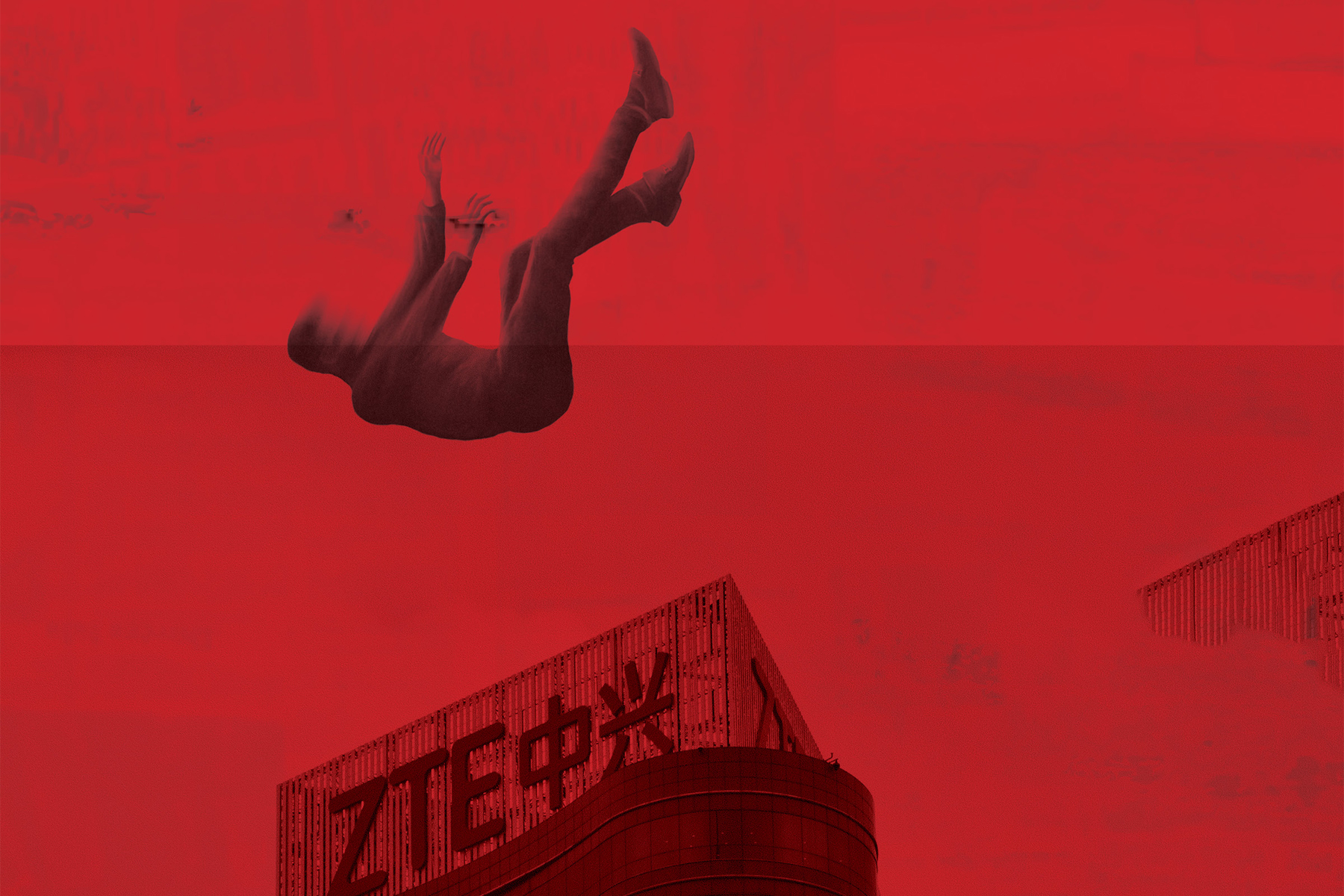The moment we stepped off the elevator on floor 16, it seemed as if we had entered an alternate universe. There was no air conditioning, and the uncirculated air had a stale and dingy quality. The whole ambience of the floor felt untended and frayed around the edges, like an old bus or an airplane that should have been retired years ago. This was clearly a section of the building where guests were never meant to be taken. Not a single office seemed occupied. Old retired chairs were stacked up next to empty rooms. Dust was collecting everywhere, and outdated office equipment lined the walls. It looked like the hallway you walked through in a horror movie. Were they trying to send me a message?
“Welcome to the real ZTE,” I half-joked to Nueve, a lawyer from DD&M, the D.C.-based silk-stocking law firm we’d hired to help with the Commerce Department’s subpoena.
Nueve and I walked down the poorly lit hallway and knocked on the door of the small conference room to which we’d been directed.
“Enter, please,” came a voice from within.
As we stepped into the room, I felt as if we were stepping onto the set of a B-grade spy thriller. The room was bathed in darkness—no windows, no lights on, only what little ambient light was leaking in from the hall. A man sat at the end of a table, his face obscured by shadows. A small banker’s lamp, turned off, and a laptop computer sat in front of him on the table.
“Please, have a seat,” the man said in an unnaturally deep voice, almost as if he was trying to play to the thriller-movie vibe. It was Preston; I recognized his voice and broken English.
I laughed, as I am prone to do when I’m feeling uncomfortable. “Any chance we can have a little light in here?” I said, looking around for a wall switch.
Preston did not answer me right away. Instead, he sat there in pointed silence for several seconds.

“Here, let me turn this on,” he finally said, pulling the cord on the small table lamp. The dim light cast Preston’s features into creepy relief, doing little to dispel the ominous atmosphere.
Nueve and I sat at the table. Silence reigned for an awkwardly long time.
I took it upon myself to break the ice. “So hello, Preston,” I said. “I’m sure you’ve seen the subpoena, so you know why we’re here—to see the packing list and the contract, and to get our copies.”
A long pause ensued.
“I’m afraid that won’t be happening today,” Preston replied.
“What do you mean?”
“You will not be receiving hard or soft copies of the documents. You may look at the electronic copies for 15 minutes each, but you may not take them into your possession.”
“We’re the attorneys on the case,” I reminded him. “We need to prepare for the Commerce Department’s request. How are we supposed to do our job if we don’t have the documents to study and analyze?”
Think about that. We’re paying this elite law firm to fly all the way to China from Washington, D.C., paying them millions of dollars—and yet we’re being given 15 minutes with the most important documents in the case?
“Those are the conditions,” replied Preston. “Do you agree, yes or no?”
“Fine,” I said. I’d have to wrestle with Guong One [general counsel for ZTE worldwide] later on to get my copies. For now, I just wanted to see the documents. “Let’s have a look at them.”
We waited for Preston to make the next move. He remained still for a moment, then shut the lamp off, plunging the room into darkness again. There was another long pause. Was he deliberately screwing with us?
“Please turn off your cellphones and place them on the table, face down,” he instructed us.
He had to be kidding. Was he about to commence an inquisition? Or was he just worried we might snap photos of the documents? I sighed my annoyance and complied with his request. Nueve did, too. Did he know something I didn’t?
Only when Preston was satisfied that our phones were safely disabled did he wake up his laptop, throwing a little light back into the room. He then turned on a small projector I hadn’t noticed. The image of his laptop screen was cast onto the wall.
So this was how we were going to review the key documents? By looking at shadows on a wall? So be it. I pulled out my notebook and pen; Preston didn’t seem to object to that.
Nueve and I stood up so we could be closer to the projected image. The first document Preston was showing us, apparently, was the packing list. In the upper corner it read “page 1 of 907.” Preston began slowly scrolling through the list for our benefit. What we were seeing were clearly the components of a cellphone tower system that had been sold to Iran, along with related equipment—routers, software products, phone equipment, networking devices.
The list was exactly as described in the Reuters piece: documentary proof of a spy-capable cell tower system that had been sold to Iran and contained thousands of components made in the United States. It was black-and-white evidence of wrongdoing.
“The Reuters article was right,” I observed. “This stuff has the capacity to conduct heavy-duty surveillance.”
Nueve nodded his agreement. “So how do we do this?” he said to me. “How do we use our time most efficiently? This document’s 907 pages and we’ve only got 15 minutes to look at it.”
“Is this a searchable PDF?” I inquired of Preston.
“It is,” he answered.
“Let’s just do a search for each of the American tech companies,” I suggested, “and see how many times their names pop up on the list.”
Off the top of our heads, we started calling out the names of the U.S. component-part manufacturers mentioned in the Reuters piece, one by one: Cisco Systems, Microsoft, Symantec, Juniper Networks. Preston would type the name into the search box and then scroll through the long document looking for highlighted items. Hundreds—sometimes thousands—of hits were coming up for each company’s products. The list was exactly as described in the Reuters piece: documentary proof of a spy-capable cell tower system that had been sold to Iran and contained thousands of components made in the United States. It was black-and-white evidence of wrongdoing, whether criminally intentional or not. The United States strictly forbade American-made components from being sold to Iran, regardless of whether they were sold separately or as part of a larger system.
I hastily scribbled as many notes as I could. My goal was to list out each U.S. manufacturer and how many times it appeared in the packing list. With only 15 minutes to work with, though, I managed to get through only a handful.
After those few searches of the document by company name, Preston abruptly stopped scrolling and clicked the document closed. Our 15 minutes had flown by. So much for the packing list.
Nueve and I next asked Preston to show us the contract. As with the packing list, he projected the image of the contract on the wall.
And that was when my life changed.
In every story, there is a defining moment—a precise instant in time—when the game changes for good. The whole story, from that point forward, can be divided into a “before and after” scenario—things that happened before the critical event and things that happened after. I was about to experience the defining moment in this story, but, of course, I didn’t know it.
The contract document was a long one, and initially it looked like any international contract I had seen before—divided in half vertically, with the English-language version on one side and the other country’s language (in this case Mandarin) on the other side. As Preston began scrolling through the contract, I was seeing several oddly named entities as the parties doing business. A couple of these were names I recognized from my earlier meeting with Mr. Tang [head of ZTE’s export department]. They didn’t make immediate sense to me. I was also seeing the word “Iran,” popping up with frequency throughout the contract.
Suddenly a group of words flashed by on the scrolling screen that struck my eye like a hot ember. I was sure I had read them wrong.
“Stop,” I snapped at Preston. “Scroll back, please.”
Preston rolled the document back two or three pages.
“Hold it there,” I said. I’m sure you could hear my chin hit the floor in the silence of the room as I was rendered momentarily speechless. Right there in front of my eyes, sprawled across the screen in bold letters, were the words “How We Will Get Around US Export Laws.”
I groped for the back my chair. I needed to sit.
I literally could not believe what I was seeing. The contract spelled out, in black and white, an official corporate intention on the part of ZTE to sell billions of dollars’ worth of U.S. equipment to U.S. adversaries. In terms of evidence, this was like the police finding a note in the home of a murder suspect entitled “How I Will Murder My Wife” with step-by-step plans. The contract couldn’t have been clearer in its intentions or more brazen in its description of its actions.
Below the heading “How We Will Get Around US Export Laws” was language explaining the plan in detail. In essence, a series of shell corporations was to be created, which would be used to disguise the buying and selling of the U.S.-made components, much in the same way organized crime uses shell companies to carry out money laundering and other illegal activities. Below the brief description was a table with four separate boxes containing the names of ZTE and three shell companies, all owned by ZTE: ZTE, ZTE Kangxun Telecommunications, ZTE Parisian, and Beijing 8-Star. And in each box their roles were duly explained. ZTE Kangxun Telecommunications would buy the parts. Beijing 8-Star was designated to sign contracts at the Iranian end of the pipeline, buy the products, and re-export them to Iran; and ZTE Parisian provided engineering services (installation) to the customers.
I continued to take notes on what I was seeing, and Preston, for some reason, did not stop me. What we were looking at was a blueprint for how ZTE planned to work with not only Iran, but with numerous other embargoed countries, such as Sudan, North Korea, and Cuba, to generate billions of dollars’ worth of global business in contravention of U.S. law.

Standing Up to China: How a Whistleblower Risked Everything for His Country
By Ashley Yablon
Brown Books, 228 pages
I was perspiring through my Uniform, and not just from the stuffy air.
After studying the screen for several minutes, I was in the middle of writing a word in my notebook when Preston shut the projector off.
“OK, we’re done,” he said with military finality, clicking the little lamp back on.
I said, “I need this information, Preston, in order to prepare for the meeting with the Department of Commerce. The more I know, the better.”
“We are done,” he repeated, his shadowy face looking every inch like a movie villain’s.
I knew we had seen all we were going to see of the docs. At least for now. “So what’s going to happen when the U.S. authorities demand to see the packing list and contract based upon their subpoena?” I asked Preston. “Are you going to tell them they can’t have the documents either? Will you ask them to watch a fun slideshow instead?”
“That remains to be decided, after the whole legal team has had a chance to consult on the matter. Is that all, gentlemen?”
“One more question,” I said. “Where is all that equipment right now, all that stuff on the packing list?”
Preston paused, considering whether to answer me or not. “It is sitting in several dozen wooden crates, each about the size of this room, in a warehouse in Iran.”
“Awaiting assembly and servicing by ZTE Parisian?”
“That is correct.”
I jotted a final note in my notebook and made my exit. As Nueve and I stepped out into the hallway, I was literally shaking. I knew the importance of what I had just seen, and I knew I had just been burdened with information that was going to drastically alter my career—and my life—one way or another, depending on what I did or didn’t do with it. A line had been drawn in the sand, but I didn’t want to look at it. At least not immediately. It felt like too much to digest at once.
“What now?” I said to Nueve, struggling to keep my voice light and casual. “Try to reconnect with the rest of the team downstairs?”
“Guess so,” said Nueve, and we headed silently toward the elevator. I knew he, too, was aware of the significance of those documents we had just seen. As a lawyer, he had some decisions to make as well. But unlike me, he didn’t have anything to lose personally; he was just a hired gun. He would be able to sleep just fine tonight, and not just because of the sateen sheets on the king-size bed at his five-star hotel.
I’ll never forget this moment as long as I live: as we were stepping toward the elevator, Nueve stopped in his tracks and looked at me, and I felt as if his eyes were fixated on my notepad full of notes still in my hand.
The pause felt like an eternity.
What I gleaned from his silence in that eternal moment was this: “You might want to lose those notes before going back to the States.”
I remained frozen in place as Nueve walked ahead of me and stepped into the elevator. The doors closed, and I let him descend without me.
Part II
I had more meetings and tasks to attend to that day, which I did with a heavy spirit and a distracted mind. As I rejoined the legal team downstairs later in the day, I was still ruminating on what I had seen in that darkened room, and on Nueve’s ominous “advice” to me. Jeff Pennington, the DD&M attorney in charge of the ZTE account, as always, seemed upbeat and optimistic. His attitude helped to lift my spirits a bit. I asked him how the preparations for the meeting with the U.S. House of Representatives Permanent Selection Committee on Intelligence were going.
“Superbly,” he told me. “We’re ahead of schedule. We’ve found some excellent documents that will help make our case on the ownership front, and we’ve got a great English-speaking tech expert who’s going to address the tech issues in a presentation and a Q&A session. All our slides and docs are looking good. We’ve got answers lined up for all the questions they sent us. We’ll be more than ready for the House committee tomorrow.”
I explained to him what I had seen upstairs. It didn’t seem to dampen his mood too much. “We may ultimately decide not to show those documents,” he informed me. “They’re discussing it in there.” He nodded to a side room, where I saw several ZTE China in-house attorneys and executives, including Guong Two [Guong One’s second-in-command] and Meghan, having an animated discussion. “We’ll get back to you on how to handle the subpoena. Cheer up; it’s all good.”
It wasn’t all good, not in my opinion. Not by a long shot.
I wandered over toward the room where the discussions were going on in Mandarin. Guong Two spotted me and hurried out of the room. Guong Two was not a large man, but he did command attention whenever he entered a room—and knowing that, he always played that angle up. With a furrowed brow, he leaned in toward me and said in a hushed tone, “What if we say we never shipped any of that material to Iran?”
What? That was the level of discussion they were having in there? He wasn’t seriously proposing this as a plan, was he?
“The cat is already out of the bag on that,” I said to him. He looked at me oddly. Speak literally, I reminded myself. I rephrased my point: “It’s already public information that the materials were shipped. We can’t just say they weren’t.”
Guong Two considered this briefly, then hurried back into the room to talk to his colleagues some more. Heads nodded furiously. After a couple more minutes, Guong Two came back out and addressed me again. “What if we say the packing list Reuters acquired was not a real document? It was fake.”
Again, was he really suggesting this as a strategy?
“First of all, it wasn’t fake, it was real,” I replied. “Second, we don’t know who the source was who leaked the list to Reuters. It may have been someone within the company. It may have been someone who has plenty of evidence to show the list’s authenticity. If that’s the case, we would only be making matters worse, not better, by lying. That would be a dangerous route to take.”
“What if the list didn’t identify the U.S. companies?” he pressed me.
“But it does identify them. I just saw it upstairs. Are you suggesting we alter the document by deleting the names? That won’t change the copy of the document that’s already out there. And besides, it wouldn’t take much for someone to identify the manufacturers just by reading the product details.”
Guong Two went back to the huddle and they talked some more. Out he came again.
“What if we go over to Iran, open the crates, and switch out all the American parts with non-U.S. parts?”
Unbelievable. Each idea he was proposing was more illegal and outrageous than the one before it. This idea had so many obvious flaws as to render it ludicrous on the face of it. But he was serious. Dead serious.
“We’re talking about thousands and thousands of parts, in dozens of massive wooden crates,” I said. “Think of the logistics! And where are you going to find all these new non-U.S. parts? There’s a reason ZTE uses U.S. parts in the first place—because in many cases, the U.S. is the only country that makes them. And anyway, this strategy still wouldn’t change the fact that the packing list has already been publicized. There’s no way of getting around that.”
Guong Two returned to his group, talked some more, came back to me yet again.
“What if we go over to Iran, find all the U.S. parts in the shipping crates, and scratch out the serial numbers?”
Wow. I stood there with my mouth wide open, dumbfounded that this discussion was even happening. Just as with my earlier conversation with Mr. Tang about the shell companies, I truly thought TV cameras must be recording my reaction before I was let in on the gag. But no, this was real.
“I will relay your opinion to the others,” he said. He returned to his group and commenced talking again, leaving me shaking my head in disbelief. After a couple of minutes, Meghan stepped away from the group and approached me.
“Magic,” she said at half-volume.
I nodded, looking around to make sure we were alone.
“Do you hear what they’re saying in there?” she asked me.
“I hear them talking, Meghan, but I don’t speak Mandarin, so no.”
“They’re saying they want to shred all the documents related to the subpoena, and wipe them from the servers and from everyone’s hard drive. They’re going to lie when the Commerce Department asks to see the docs. They’re going to say we don’t have them. They’re thinking about going over to Iran and changing out all the parts with new ones.”
“That’s crazy. We’re talking about thousands and thousands of parts.”
“You forget. One thing we have in China is human capital. Manpower is not an issue.”
“And how are they going to sell this crazy story to the Department of Commerce? Those people aren’t idiots.”
“They’re not going to sell the story,” Meghan said. “You are.”
“What?”
“They still see you as the person who will stand up and tell the story to the authorities. They are planning for you to be the—what is the term—escape goat.”
For the third time that day, my jaw dropped to my chest.
Meghan whispered, “Magic,” turned, and rejoined the group.








